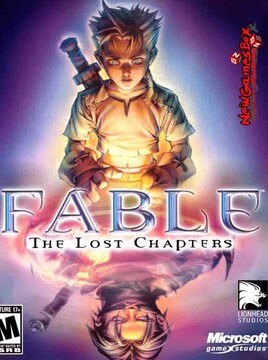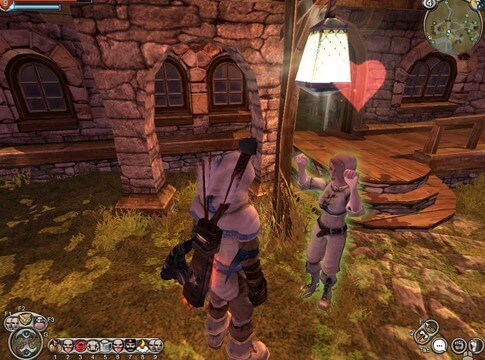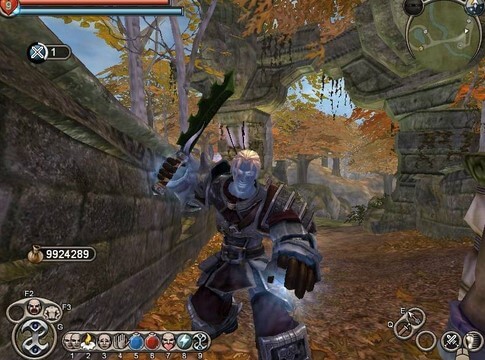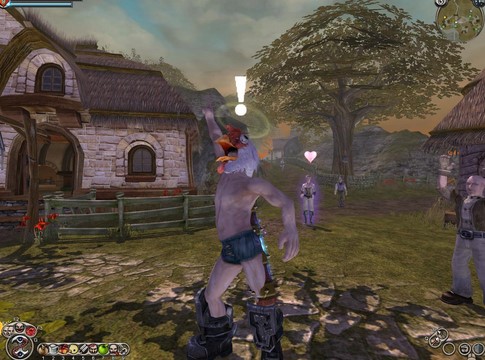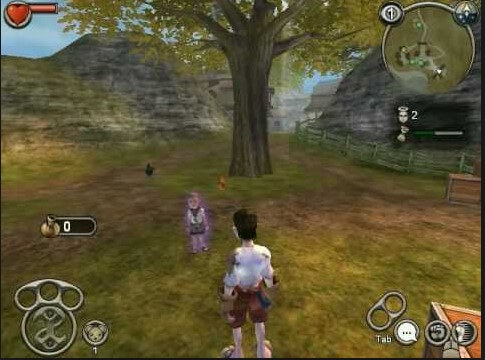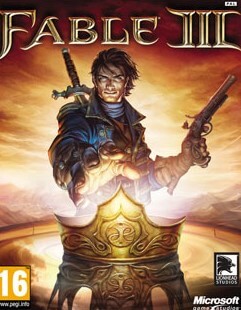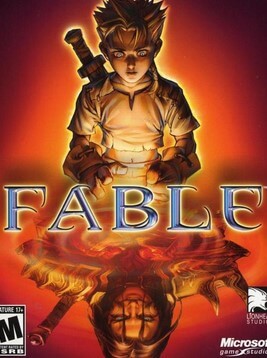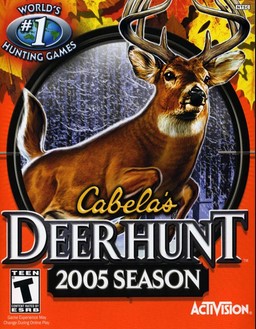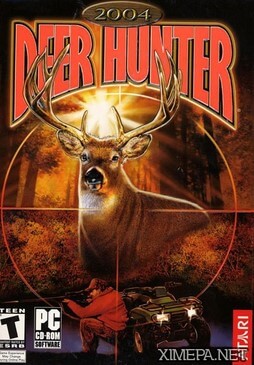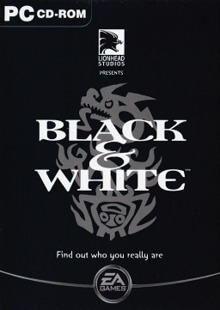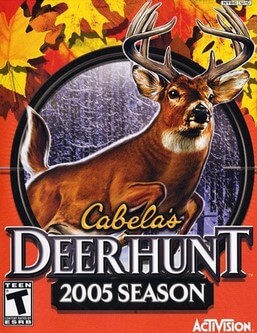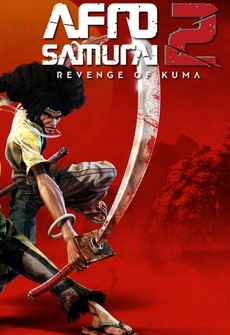Fable is an action role-playing video game, the first in the Fable series. It was developed for the Xbox, Microsoft Windows, and Mac OS X platforms by Big Blue Box Studios, a satellite developer of Lionhead Studios, and was published by Microsoft Studios. The game shipped for the Xbox in September 2004. An extended version of the game, Fable: The Lost Chapters, was released for the Xbox and Windows in September 2005. A port of the game for Mac OS X, created by Robosoft Technologies and published by Feral Interactive, was released in March 2008 after a delay of more than two years due to licensing issues.
Originally developed under the name Project Ego, Fable's development involved more than 150 people. The game's music was composed by Russell Shaw, with the opening title theme written by Danny Elfman. The game's release was widely anticipated, due in part to Lionhead co-founder Peter Molyneux's enthusiastic hype of the game. The game was originally in development for the Dreamcast, but was moved to the Xbox due to the system's discontinuation.
Fable was well received by critics for the quality of its gameplay and execution, though the failure to include many promised features was noted. Fable was the top-selling game of September 2004 and sold more than two million units by 2007. The game was followed by two sequels, Fable II in 2008 and Fable III in 2010. Fable Anniversary, a high-definition remake of the game that includes The Lost Chapters, was released for the Xbox 360 and Microsoft Windows in February 2014.
Gameplay
Fable is a role-playing video game where players control their character from a third person perspective. The main character, known as The Hero of Oakvale, can interact with people and objects as well as battle foes. The goal of Fable is to complete missions called quests that advance the game's plot, but Fable also features optional quests and allows players to pursue actions not directly tied to story completion.
Most quests are acquired at a central location, known as the Heroes' Guild; required quests are marked with a gold symbol and advance the game's story, while optional quests are coloured silver and can be completed in any order. Some quests allow players to pick sides and aid either evil characters, such as bandits, or good characters, such as traders and guardsmen. Players can also boast after accepting a quest, wagering some of the quest's reward gold in exchange for a larger return if the player accomplishes their bet, such as sustaining no damage or undertaking the quest naked. Each quest's completion gives players gold, which can be used to buy weapons and items, and renown, which affects the way townspeople react to the Hero. Heroes also earn trophies of their victories, which can be displayed to large groups of townspeople to earn more renown.
In addition to fighting with melee weapons (such as swords and maces) and ranged weapons (longbows and crossbows), Heroes can learn and use spells to empower their abilities, ward off damage, or harm foes. As players complete quests or defeat enemies, they gain general experience as well as experience based on whether they used melee attacks, ranged weapons, or magic; these bestow Strength, Skill, and Will experience, respectively. Experience can be spent at a platform in the Heroes Guild to level up attributes. General experience can be used to modify all groups of attributes. Strength experience can only be used to modify three attributes: Physique, Health, and Toughness. The same applies to Skill which can only modify Speed, Accuracy, and Guile. Will can be used to upgrade your total magic power or to learn and upgrade spells which are broken into three groups, Attack Spells, Surround Spells, and Physical Spells. The experience the main character gains can be multiplied during combat through the combat multiplier. As the character successfully hits an enemy, his combat multiplier increases. If the character is hit by the enemy, the combat multiplier drops down to the next multiple of five, or zero if below five.
Fable's game world is dotted with towns where recreational activities not related to combat can be undertaken. Enterprising Heroes can buy trade items such as beer kegs or grain sacks and sell them at other towns for profit. Towns are also prime locations to buy clothing, weapons, or other items. Many towns have houses for sale, which the Hero can buy, furnish, or lease to tenants for gold. Heroes may woo and marry men or women in each town.
Alignment
In Fable, a player's Hero has a measure of good or evil alignment based on the Hero's actions. Good deeds award good points, which produce a positive alignment, while committing evil acts adds evil points, producing a negative alignment. Killing monsters or saving villagers are acts of good, whereas killing innocents, breaking laws, or abusing a spouse will accumulate evil points. Consuming certain foodstuffs can also affect the Hero's alignment; for example, eating tofu will earn the hero positive points, while eating crunchy chicks (because crunchy chicks are assumed to be still alive) will earn evil points. The player may also pray at the temples of Avo and Skorm. Donations to the Temple of Avo will result in good points, while "gifts" to the Chapel of Skorm will result in evil points. The alignment affects not only the responses of non-player characters around the Hero, but also the appearance of the Hero himself. A Hero with a strongly positive alignment will feature a halo and a shaft of sparkling light above his head, butterflies fluttering around him and lighter features. An evil Hero emits a red haze from around his legs, draws flies, has glowing red eyes and grows horns.
